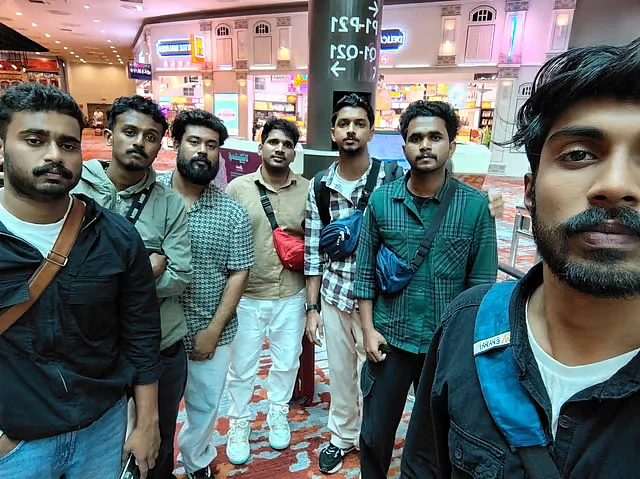Lured by jobs, trapped in terror: Indian men’s harrowing escape from Cambodian cyber centre
According to the seven men from Kerala, the scam centres in Cambodia owned by ruthless Chinese crime syndicates have in their possession phone numbers, Aadhaar card numbers, bank account numbers, and addresses of several Indians.
“It was sheer luck… we were almost killed and here we are now, talking about it,” a relieved Semil Dev tells TNM. The 23-year-old from Kerala’s Vadakara was one among the group of young graduates who travelled to Cambodia in October after being offered lucrative jobs. Little did they know that they would be tortured, threatened with murder and risk their lives to escape a Chinese criminal gang that will stop at nothing to swindle money
Soon after they joined work, the men realised it was a classic Cambodian scam centre where their job was to target people back in India and other south Asian countries. They returned home with only a few injuries, but there are hundreds of others in that country who haven’t been so lucky.
Terms such as ‘cybercrime’ and ‘digital arrest’ are widely known in India now, after thousands of Indians having lost money through fraud calls. According to a report by India Today, as of October this year, the Home Ministry’s cyber wing has reported a total of 92,334 cases related to digital arrest fraud.
The seven men from Kerala – Semil Dev, Ajmal MT, Arun SA, Abhinav Suresh, Abhinanth CP, Roshan, and Aswanth Babu – narrated the other side of the story to TNM – what happens inside these call centres. The scam centre also used the identity of a real police officer from Maharashtra, who TNM spoke to for this story.

Their testimony is also a scary reminder of the fact that the confidential data of thousands of Indians is in the hands of gangs running extortion rackets from a Chinese proxy state whose economy – and law enforcement infrastructure – is in shambles.
“It was my cousin who offered me a job abroad. I was working in a travel company in Kozhikode and my family encouraged me to take the job. Initially, my cousin mentioned Malaysia, then changed it to Pattaya in Thailand. Finally, I went to Bangkok and from there I was asked to go to Cambodia,” 27-year-old Ajmal explains.
His story is similar to those of the other six men. “My friend Anurag who lives in Cambodia told me about the job. He said it involved sales and advertising, or jobs on betting platforms. He often mentioned that it was an easy job with an attractive package. The basic salary was around Rs 1 lakh and the package included food and accommodation,” Semil adds.
The company was introduced to them as Infinity International Sales and Advertisement. The realisation that they were joining a scamming platform came gradually after they started working at their new office. The money was good and others may have been tempted to go with it, but this group was different.
While the men escaped, their experience highlights the continuing worrying trend of educated Indians getting tricked with lucrative job offers in Cambodia. Though the Indian government has carried out rescue missions and brought back at least 500 people who were trapped in ‘digital slavery’, the scam also exposes how loopholes in our law allow recruitment agencies to traffic prospective candidates.
Subscribe now to unlock the story

Why should I pay for news?
Independent journalism is not possible until you pitch in. We have seen what happens in ad-funded models: Journalism takes a backseat and gets sacrificed at the altar of clicks and TRPs.
Stories like these cost perseverance, time, and resources. Subscribe now to power our journalism.
- Paywall stories on both Newslaundry and The News Minute
- Priority access to all meet ups and events, including The Media Rumble
- All subscriber-only interaction – NL Chatbox and monthly editorial call with the team
- Stronger together merch – Fridge magnets and laptop stickers on annual plan
₹ 500
Monthly₹ 4999
AnnualAlready a subscriber? Login
